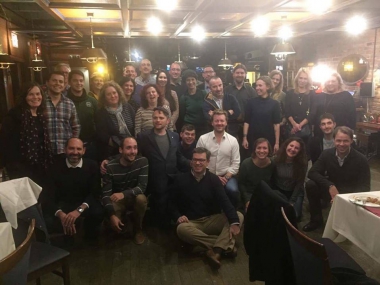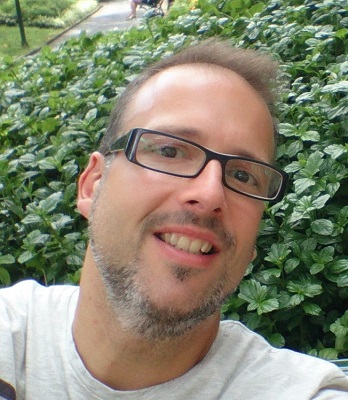"Vital Cities" Met in Latvia to Exchange Experiences in Favour of an Active Life of Citizens
Edited on
30 November 2016Last week, in Liepāja, Latvia, another Meeting of the "Vital Cities" Project was held, which gathered the ten cities that are part of this European network led by Loulé. With the aim of promoting active and healthy lifestyles, the partners shared experiences, participated in workshops and discussion groups, attended expert presentations and visited some spaces of the city where the Latvian municipality intends to intervene.

Among the several exhibitions that brought to this meeting new ideas to act in the public space, making possible the practice of sports and simultaneously breaking social barriers, the Enrique Orts’ presentation stands out, from the Municipality of Valencia, who referred the sporting organization of this city that is considered a model internationally.
Also Mandy Ayers, a member of the Physical Activity Committee and a Nike representative, focused on the connection between activity level/physical inactivity and health indexes.
Liepāja, with about 75,000 inhabitants, is Latvia's third largest city, located on Baltic coast. The city is making efforts to promote a more active lifestyle to help its residents to improve their health. In recognition of the achievements in the development of sport, Liepāja was awarded with the title of "European City of Sport 2016". The Municipality intends to change the citizens’ behaviour relatively to public spaces, so that they are more proactive in their use according to their own needs.
Being a former Soviet Union territory, the legacy of the Cold War period is obvious. In this regard, the "Vital Cities" group visited Beberlini Park, a former military camp now abandoned, which is intended to be converted into an open sports space for the population, namely for activities like running, paintball, softball or cycling.
In Hugo Nunes’s opinion, the deputy mayor of Loulé and lead partner of the project, this meeting proved to be very fruitful, because it was another important moment of exchange of experiences between the 10 cities, solidifying the concept of the projects and its objectives.
Financed by URBACT, a European program for learning and exchange of experiences in the promotion of sustainable urban development, "Vital Cities" is a project that seeks to combat social exclusion by restoring spaces in residential areas using the power and common language of the Sports through innovative urban actions, diverse physical equipment and provision of services better organized and planned to respond to the needs of the community.
In addition to Loulé, this network is composed of the cities of Burgas (Bulgaria), Krakow (Poland), Budapest (Hungary), Birmingham (England), Vestfold County (Norway), Rieti (Italy), Usti Nad Labem, Liepāja (Latvia) and Sibenik (Croatia).
Following the kick-off in the English city of Birmingham in July and this meeting in Liepāja, a new joint initiative of the “Vital Cities” project is scheduled for May in Rieti, Italy.
 Submitted by jguerreiro on
Submitted by jguerreiro on
